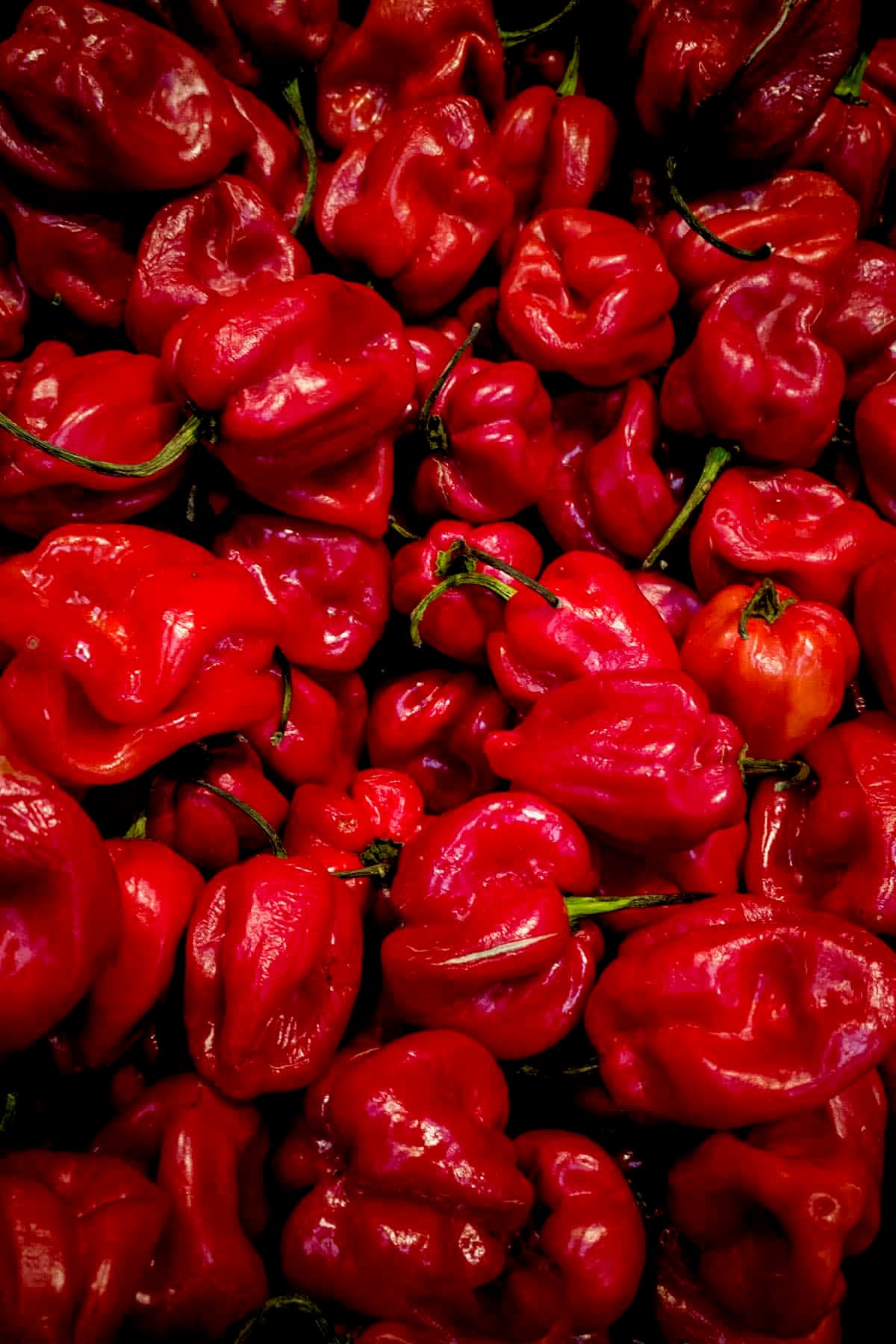Cos I'm Yoruba doesn't mean I like pepper.
"Tí kò bá jọ ẹran, kó jọ ẹ̀fọ́, àfi pé kó jọ ata.- If it doesn’t taste like meat or vegetables, it must at least taste like pepper."
The Dott signifies the end but thank you for always starting new journeys with me.
I started this blog post with “Gentility by Melvitto & Wande Coal” playing through my speakers, you should listen to it to.
A few days ago, I went out to dinner with a friend. When it was time to order, I couldn’t decide what I wanted, so I asked him to choose for me. Harmless, right? Well, not really. This man, in all confidence, ordered me a bowl of pasta—drenched in pepper. Not tomato sauce. Not arrabbiata. Just pure, fire-breathing pepper.
Now, while that might sound like heaven to some people, to me it was a clear assault on my peace. I asked him, “Why would you order something so spicy for me?” and his reply was, “Because I know you like pepper.” In that moment, my inner Yoruba auntie rose up with a full “as how?” I asked when I ever told him that I liked pepper. Of course, he couldn’t give an answer. Then I asked if he assumed I liked pepper simply because I’m Yoruba—and that’s when he realised the error of his ways and burst into laughter.
While the whole thing was funny in the moment, it also made me realise just how often this kind of assumption gets made. There seems to be this unspoken (and very unserious) cultural contract that if you’re Yoruba, you must also enjoy setting your mouth on fire every time you eat. But when exactly did taste buds become part of tribal identity? How did “liking pepper” become a core requirement for being Yoruba?
Of course, I understand where the stereotype comes from. Yoruba cuisine has its signature dishes—efo riro, ayamase, ofada stew, and the ever-dramatic asaro elepo—and they often require a serious level of heat to reach their full potential. For many, the enjoyment of these meals is directly tied to how much you can sweat and survive through them. But let’s be clear: not all of us signed up for that. Some of us want to enjoy our food in peace. Some of us do not believe that every meal should feel like a test of spiritual and physical endurance. Personally, I’ve always been a strong advocate for not suffering in silence—or in spice.
I even know people who force themselves to eat hyper-spicy meals just to prove a point. They sit there, sweating through their clothes, eyes red, gulping water like it’s a race—all in the name of “I’m Yoruba, I gat this.” No, you don’t. And you look ridiculous. Let it go.
This brings me to a larger issue: the way we cling to stereotypes under the guise of banter. It’s always “Yoruba people like pepper,” “Yoruba people are loud,” “Yoruba demons”—on and on, without pause. And it’s exhausting. We live in a generation that prides itself on being progressive, reflective, and “unlearning” toxic traditions. Yet, we’re quick to fall back on these tired clichés, most of which don’t hold water if you actually stop and think about them.
Take the “Yoruba people are loud” narrative, for instance. Yes, I have a loud voice. But is that because I’m Yoruba, or because that’s just how my vocal cords work? Loudness is not culturally exclusive. I’ve met loud white people, loud Asians, loud everyone. Volume is not a tribal trait—it’s a personality quirk. Blaming Yoruba culture for natural decibels is lazy.
And then there’s the infamous “Yoruba demon” label. This one is tricky. I would love to defend Yoruba men in full, but honesty won’t let me. That said, branding an entire group of men as emotionally unavailable heartbreakers just because a few of them played someone dirty is wild. Yoruba men are still getting married every weekend. Surely not all of them are out to break hearts and vanish. (Although, let’s be real—some of you are still dodgy. Let’s not lie.)
Jokes aside, stereotypes can be genuinely harmful. They shrink people down to caricatures, limiting how we’re seen and often how we see ourselves. It’s easy to brush it off as humour, but when people constantly assume things about you—what you eat, how you speak, how you love—just because of your tribe, it becomes tiring. You can’t define someone’s entire identity just because they happen to come from Oduduwa’s bloodline. It’s not only incorrect, it’s also very unserious behaviour.
For the record, I love being Yoruba. Deeply. I love the language, the richness of our history, the proverbs, the cultural pride, the food (yes, including pepper in moderation), the fashion, the community. There’s so much beauty in our identity. But there’s also a lot more to being Yoruba than agbadas, high volume, and chili peppers. Our culture is layered, thoughtful, poetic, and powerful. It deserves more than shallow soundbites and generalisations.
In conclusion, I’m Yoruba—but that doesn’t mean I enjoy meals that double as a tongue workout. Next time you meet someone Yoruba, ask them what they actually like instead of assuming they want their taste buds annihilated.
Let people be Yoruba in peace. Let them enjoy small pepper or no pepper at all. Let them be soft-spoken, emotionally intelligent, and drama-free (yes, it exists). And above all, let’s retire these lazy stereotypes that do nothing but flatten the fullness of our identities.
Because truly? Being Yoruba is deeper than pepper.
Once again, I need you guys to actually start commenting on my blog, stop viewing and passing.😭🤲🏾


